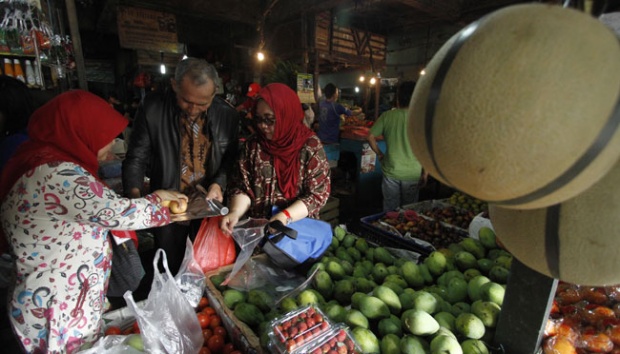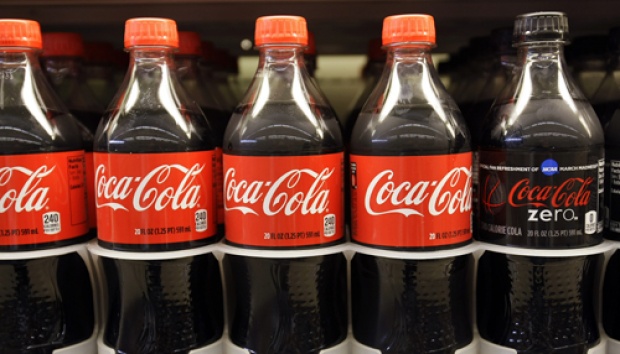
TEMPO.CO, Jakarta - Although it claims to have had a surplus of rice in 2015, Indonesia still imported rice throughout the year and will continue to import food items such as rice, beef and raw sugar in 2016.
According to Trade Minister Thomas Lembong, the government will still face difficulties in avoiding the need to import food in 2016 because it needs to maintain supplies to prevent food price hikes throughout the country.
He said he was not yet satisfied, because of the upward trend of food prices. So, he will not be able to prevent food from being imported to strengthen stocks and meet domestic needs, while waiting for larger agricultural harvests in the coming several years.
Based on monitoring in the field, the medium-quality price of rice has now reached Rp10,675 per kilogram (kg), which increased from Rp8,939 per kg in September, while the normal price is approximately Rp8,300 per kg.
Minister Thomas said Indonesia could continue importing food, as it has a high surplus in its balance of trade, reaching about seven to nine billion US dollars in 2015.
"Indonesia's trade balance had a high surplus in 2015, which provides room for food imports. We should maintain an equilibrium so that the balance would not be too sharp and food prices would not rise too high," Thomas said, on the sidelines of preparations for National Christmas celebrations in Kupang, East Nusa Tenggara on Sunday (Dec. 27).
Thomas noted that with the trade surplus of seven to nine billion US dollars in 2015, there is still a chance to import food, in a bid to prevent food price increases at home.
Therefore, the government has decided to import rice in 2016, while waiting for food production at home to become adequate to meet local needs.
"The President and Vice President have stated several times that becoming self-sufficient in food supplies is a mid-term target. We need time to overcome the problem from its fundamental root, such as through developing dams, irrigation and logistics," noted Thomas.
He added that those food items that will still need to be imported in 2016 are rice, beef, in the form of feedlot cattle, and raw sugar. For feedlot cattle, Indonesia is expected to import some 700 to 800 heads, while it is hoped to import over three million tons of raw sugar.
"It is not yet a final figure. I am also convinced that there will be imports of rice again, apart from 1.5 million tons that had been agreed upon last September," the minister said.
The government is still making calculations about the volume of rice to be imported in 2016, he added.
Rice imports will be made because rice planting seasons in the country were shifted after the El Nino weather phenomenon hit the country this year. The government has since decided to import 1.5 million tons of rice. But up until now, the volume that has been imported had not yet reached one million tons. So, the remaining rice is expected to arrive during the first quarter of 2016.
Thomas said that although there is still rice to be imported in the first quarter, the government will continue to need to import even more rice, apart from that agreed this year, to reinforce stocks in 2016.
Some time ago, the minister said, the government decided to import 1.5 million tons of rice from Thailand and Vietnam. The government was even seeking new supplier countries, such as Pakistan.
The decision to import rice led certain parties to cast doubts on the accuracy of the country's rice production data. Through its Director General for Food Crops Plantation, Hasil Sembiring, the Ministry of Agriculture claimed that the countrys rice production included a surplus in 2015.
He said Indonesia had a rice production surplus in the October 2014 - October 2015 period because it did not import rice for public consumption during the period.
"Rice production had a surplus. This is the best achievement over the past five years," Hasil Sembiring said in Jakarta last November 27.
In October 2014, state logistics board Bulogs rice stock was 1.7 million tons, which included imports of 800 thousand tons. But in October 2015, without optimal absorption during the peak of the grand harvest in the January - May 2015 period, Bulogs rice stock remained at 1.7 million tons, he said.
He added that the surplus was reached, even though there was an increase in the population by 3.7 million, who consumed 460 thousand tons of rice. "Although Indonesia was hit by strong El Nino, rice increased to 1.26 million tons from that in 2014," he said.
In 1998, with strong El Nino (1.9 percent intensity), Indonesia was forced to import 7.1 million tons of rice. At that time, the size of Indonesia's population was only 202 million.
But in 2015, the population reached 252 million, with an El Nino intensity of 2.4 percent. In such a condition, Indonesia should have imported 9.0 million tons of rice, but instead had a stock of 1.3 million tons, the director general said.
Responding to those parties who cast doubts about the ministrys data, Agriculture Minister Amran Sulaiman said his ministry, along with other agencies, will improve agricultural data to assure accurate figures are available about the nation's rice output.
"If the data is correct, but the production method is wrong, this will be useless," he noted, after inaugurating the Horticulture Carnival Festival 2015 at the Bogor Institute of Agriculture in Bogor, West Java, on November 29.
The minister urged Indonesian farmers to give priority to improving rice production and provide correct data to the government. Hasil Sembiring said earlier that his office had not yet received data about national rice production.
He added that it is the Central Statistics Agency (BPS) that issues data about rice production. The ministry has, so far, only gathered data from the agriculture chain and then reported this information to the BPS, which has personnel available through the sub-district level.
According to data from the BPS, Indonesia was expected to harvest 75 million tons of dry unhusked rice, equal to 43.940 million tons of rice in 2015.
However, the agency later revised downward rice production data to 74.99 million tons due to the El Nino-induced drought.
Despite being revised, data from the Agricultural Ministry shows that Indonesias rice consumption this year will reach 33.36 million tons. Thus, the country will see a surplus of rice production.
Yet, Indonesia will continue to import rice, causing some parties to cast doubt about the accuracy of rice production data provided by the BPS.
ANTARA























